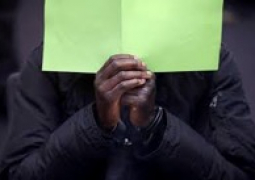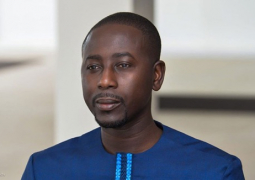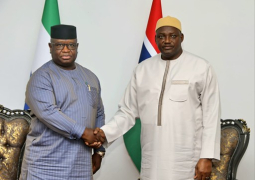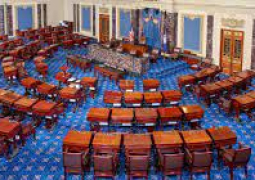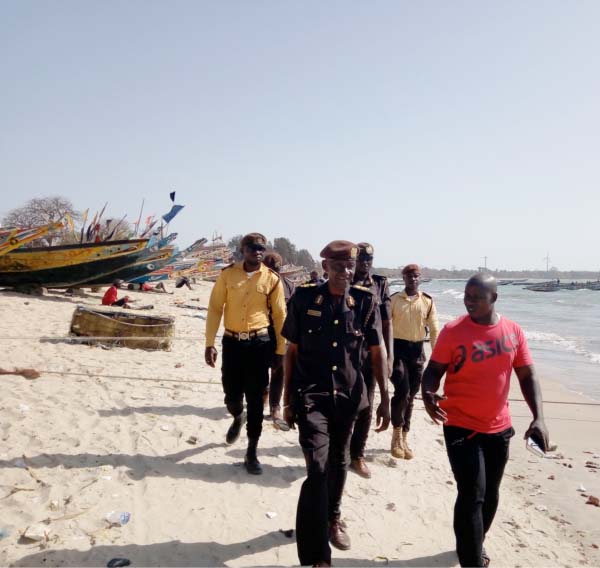
The first Senegalese fishing boat, believed to be coming from Mbour, Senegal, a place that is hit by covid-19 pandemic, arrived at Tanji sea site on March 18, 2020, while two other boats arrived on 20 and 21 March respectively.
President Adama Barrow, last month approved the closure of all borders between The Gambia and Senegal including air and sea routes as measures to stem the spread of the covd-19.
The GID’s commissioner of Operations on Friday began an assessment tour on the country’s borders and landing sites with a view to getting first-hand information on how their frontline officers are operating on the ground.
On Saturday they visited Berending Crossing Point, Tanji, Gunjur and Bakau fish landing sites.
“Since president’s declaration of closure of our borders, including air and sea, our officers, most especially those currently on borders are working effectively in ensuring that the president’s declaration is being enforced to the letter,” Ebrima Jobarteh said.
The fight against the deadly coronavirus pandemic, Jobarteh said, requires all hands on deck, hence their officers are working tirelessly in ensuring that the movement of people within our borders is restricted.
Mamanding S. Dibba, the spokesperson of the GID said: “The management of GID thought it wise that in order to enforce the president’s declaration of closing the borders; we also need to strengthen our operations. The fight against the pandemic is the fight for everyone and it’s important for all of us.”
Speaking at the Bakau Fish Landing Site, he added that it was very important for the GID to know the activities happening there especially during this time when the movement of people is restricted.
At Bakau Fish Landing Site, a boat was initially refused landing. However, because they couldn’t go back due to some problems, according to immigration spokesperson, they decided to invite the health personnel and we unanimously decided to “allow them to land but subject them to quarantine.”
Jakaria Darboe, officer commanding for Tanji said: “In order to control the movement of the fishing boats, we try to register all the boats. The three Senegalese fishing boats coming from Mbour were intercepted by our officers and we arranged fuel for them and asked them to return. Our officers are 24 hours patrolling the sea and riversides to making sure that no one uses our waters to enter the country,” he said.
Among the challenges raised by the frontline officers include the lack of mobility for patrol.
Sulayman Kujabi, GID commissioner for WCR, said some people are now trying to use canoes and boats to cross during the night “through our waters. Therefore, as part of operation plans, we stationed officers across all crossing points in the region.”


